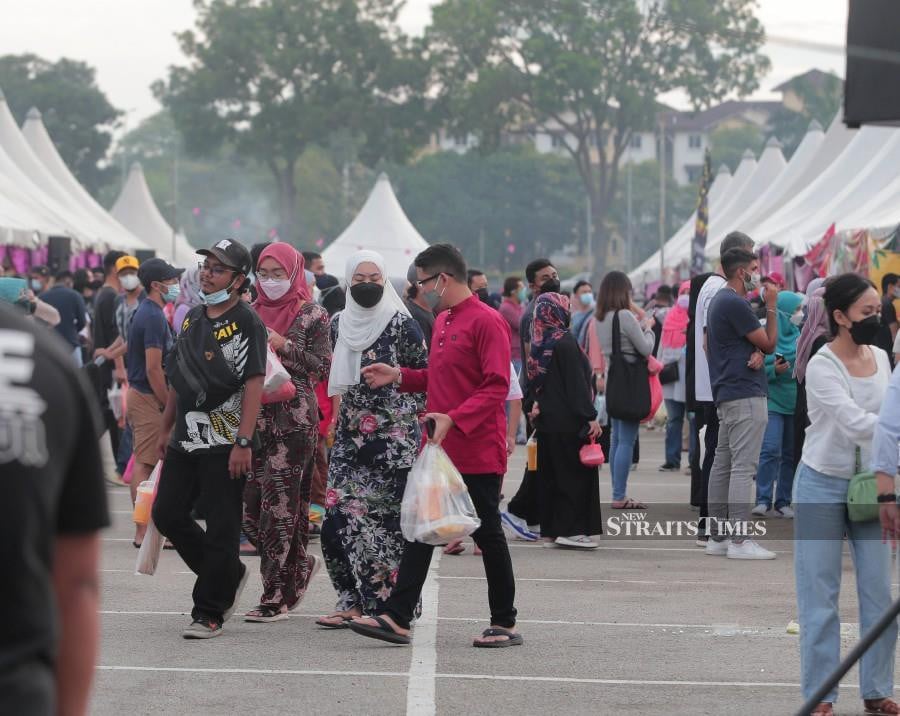
KUALA LUMPUR: The Federation of Malaysian Consumers Association (Fomca) is calling on the authorities to establish a more efficient system for public complaints via hotlines and other platforms, in the wake of rising food safety issues in Ramadan bazaars.
Deputy secretary-general Nur Asyikin Aminuddin, who suggested this, said she had called up a number of state Health department complaint lines, but no one answered.
Some lines, she claimed, were even dead.
"This explains public apathy in terms of complaining, or choosing to take their complaints to social media instead. They feel that once something is viral, their grouses become top priority," Nur Asyikin told the New Sunday Times.
She commended the Terengganu Health Department for setting up QR codes linked to forms for consumers to lodge complaints. These codes were put up outside bazaars.

"Even WhatsApp lines where messages are acknowledged are decent (platforms for public complaints). Follow-up messages on their checks and investigations would also go a long way in assuring the complainant that the issue is being addressed.
"Currently the pressures of the pandemic, prospects of making fast money at Ramadan bazaars and the cramped conditions at the facilities, are all a health disaster waiting to happen, so the authorities need to watch these facilities like hawks."
She said escalating food prices and the temporary nature of bazaars also appealed to businessmen. However, with younger and newer traders in the bazaar trade, requirements, including food handling and safety training, might have fallen by the wayside.
Nur Asyikin said traders who broke food safety and quality regulations under the Food Safety Act of 1983 and Food Hygiene Regulations 2009 should be blacklisted by associations granting the lots and local authorities after three offences.
"If they are booked on three occasions, they shouldn't be allowed to trade in bazaars. Local councils should (also) look into blacklisting them from other trade related to food."
Hajar Jaafar, an ayam penyet trader at the PKNS Ramadan bazaar, said the pressures of the pandemic and cramped spaces at the bazaars were no excuse for selling dirty or poor quality food.
"Yes, there is a probability that the pandemic is pushing everyone to make a quick buck, but this is food. Things may have gone up in price, so you can add or reduce an item. But hygiene and safety is a non-negotiable subject," said the trader with 20 years of experience.
She said she was horrified to watch the video of wriggling maggots in a noodle dish that was purchased by a woman from a bazaar in Putrajaya.
"Storing food items and cooking food in shops, and then transporting them to stalls nearby should not be an issue provided the items are properly handled and stored."
Hajar said she agreed that traders who break food safety and quality regulations should be booted out of bazaars after their third offence.
She, however, claimed that the issue was mostly due to new traders who were attracted by the promise of easy money at bazaars, without thinking of the consequences.
Hajar said seasoned traders were usually trained in food handling, hygiene, safety and quality requirements by local authorities.
In her case, Hajar said she had been trained by the Shah Alam City Council.
Microbiological food safety expert Dr Noor Azira Abdul Mutalib said that cases of food poisoning involving stalls and bazaars were likely due to traders serving one- to three-day-old dishes.
"Maggots appear only one to three days after flies lay their eggs. Basically, if food is cooked commercially, it has to be finished in the same day. Reheating food more than once might kill microbes, but toxins would form instead."
She also said that food meant to be served hot or warm cannot be laid out in room temperature conditions beyond four hours, and food that is meant to be kept in the refrigerator or the freezer usually cannot be kept outside beyond one to two hours.
The best way to deal with this, she said, is to ensure that all food handlers and operators are trained in food safety, hygiene and quality requirements. - NST


No comments:
Post a Comment
Note: Only a member of this blog may post a comment.